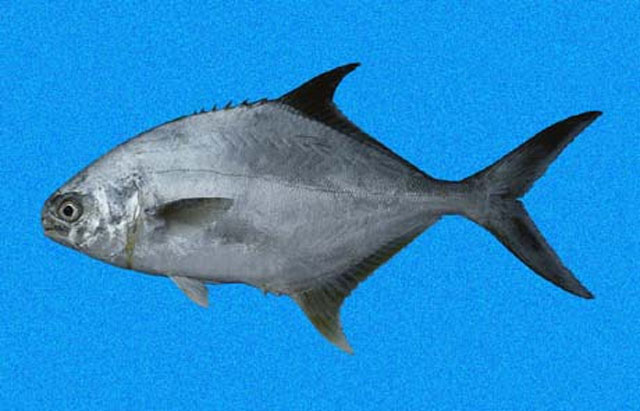| Carangidae (Jacks and pompanos), subfamily: Trachinotinae |
| 51 cm TL (male/unsexed) |
|
benthopelagic; marine; depth range 0 - 100 m |
| Eastern Pacific: Redondo Beach in southern California, USA to Chile, including the Galapagos Islands. |
|
Body deep (less so with age) and strongly compressed; mouth small; jaw teeth small, villiform, and only slightly hooked, disappearing with age; lower branch of first gill arch with 8 to 10 gill rakers; dorsal fin with 6 spines followed by another spine and 24 to 27 soft rays (VI+I, 24-27); upper third of body dark; belly white; flanks with golden highlights; no distinctive marks (Ref. 55763). |
| Adults are found in coastal waters, usually forming schools in shallow inshore sandy areas (Ref. 9283). They feed on mollusks, crustaceans, other invertebrates and small fishes (Ref. 9283). Excellent for human consumption. Minimum depth range based on estimate; to be replaced with a better reference. |
|
Least Concern (LC); Date assessed: 30 April 2008 Ref. (130435)
|
| harmless |
Source and more info: www.fishbase.org. For personal, classroom, and other internal use only. Not for publication.

